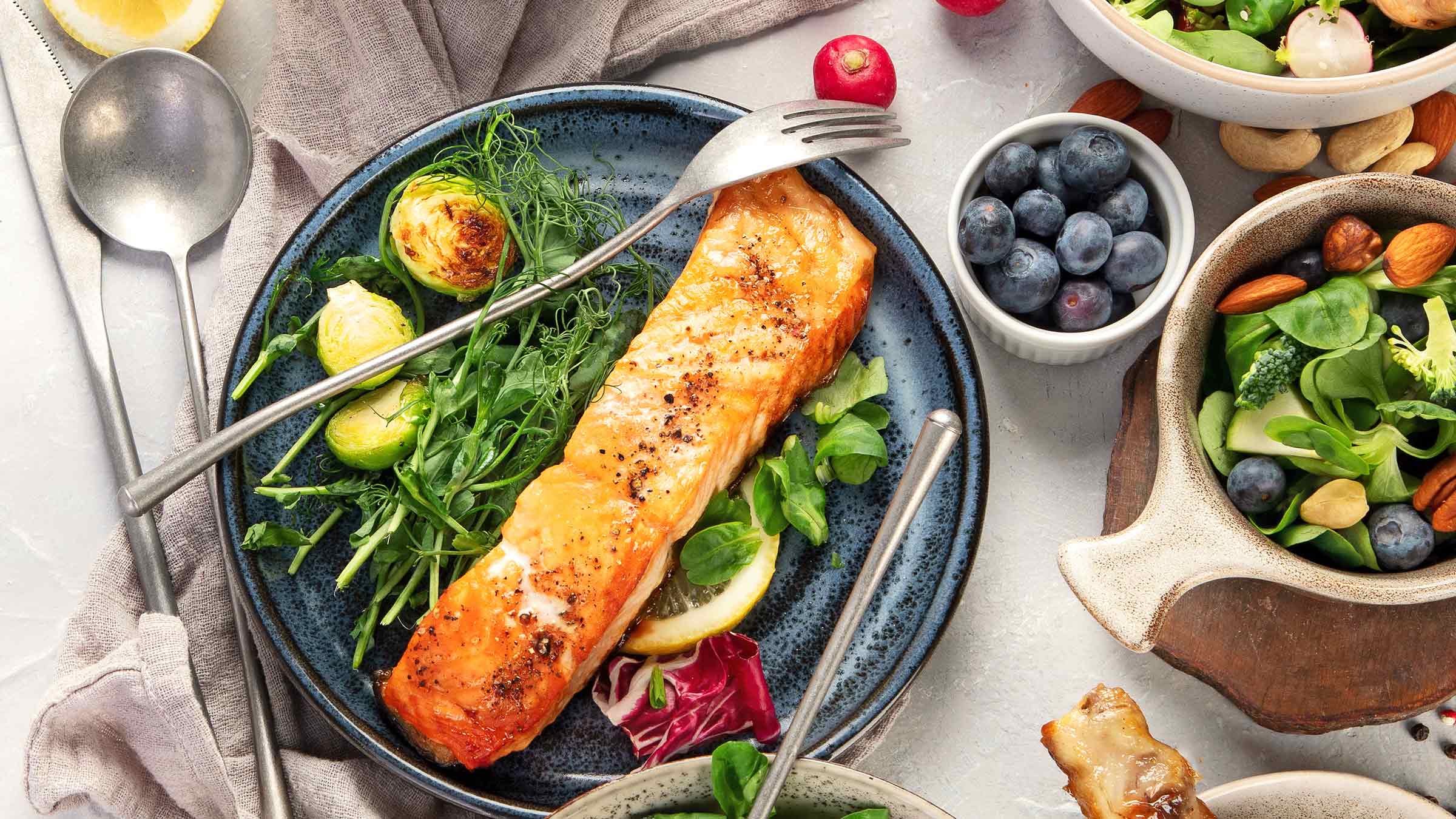
In the medical field, we’ve long known there’s a connection between chronic inflammation and most diseases, including cancer, diabetes and heart disease.
What is inflammation?
Inflammation is the way the body responds to infections and injuries. Our bodies release chemicals to injured areas to isolate and heal them.
But when the inflammation is ongoing (chronic inflammation), it can cause lasting damage.
One of the ways we can reduce the amount of inflammation in our bodies is by modifying our diets.
What causes inflammation?
Inflammation can result from exposure to environmental toxins, a lingering virus, aging or chronic stress. But what you eat contributes, too.
What foods cause inflammation?
Unfortunately, a lot of foods can cause inflammation
It’s recommended to limit or avoid these inflammatory foods:
- Red meat, such as steak and hamburgers
- Processed meat, such as bologna, bacon, sausage and lunchmeat
- Commercial baked goods, such as snack cakes, pies, cookies and brownies
- Bread and pasta made with white flour
- Deep-fried items such as French fries, fried chicken and donuts
- Foods high in added sugar, such as candy, jelly and syrup
- Sugar-sweetened beverages such as soda, bottled or canned tea drinks, and sports drinks
- Trans fats, found in margarine, microwave popcorn, refrigerated biscuits and dough, and nondairy coffee creamers
Processed foods: Read the label
It’s important to check the ingredients list of prepared or processed foods.
Many prepared foods contain hidden sugar.
It can be hard to tell, since sugar tends to assume aliases: By some estimates, there are over 50 names for added sugar in prepared commercial foods, such as “cane crystals” and “crystallized cane juice,” syrups and many ingredient names that end in “ose” (chemical shorthand for sugar).
Reading food labels is important.
For instance, any food that lists partially hydrogenated oils as an ingredient should be limited, since these are trans fats and can increase inflammation.
Reducing pain and disease with anti-inflammatory diets
An anti-inflammatory diet will help reduce inflammation, which could lead to reduced pain.
It really is a piece of the puzzle when looking at the increased damage of the cells caused by inflammation.
The inflammatory process induces oxidative stress and reduces cellular antioxidant capacity. Overproduced free radicals are caused by chronic inflammation, which then react with cell membranes impairing their function permanently.
Free radicals can lead to cell mutation and DNA damage that can be a predisposing factor for cancer, central nervous system diseases, such as Alzheimer's and other dementias, cardiovascular disease due to clogged arteries, autoimmune disorders, such as rheumatoid arthritis and cancer and cataracts and other age-related vision disorders.
Everyone can be in different stages of their inflammation, but improved health and wellness would start immediately.
Anti-inflammatory foods to include in your meal plan
While there isn’t one specific anti-inflammatory diet, experts say overall healthy eating patterns can help you get rid of inflammation and stay healthier. Some food types that can help bring inflammation down:
Omega-3 fatty acids
One form of these powerful inflammation fighters is found in fatty fish, such as salmon, herring, mackerel, sardines, tuna, striped bass and anchovies. You can get the benefit from eating the fish or by taking fish oil supplements.
Vegetarians and vegans have options, too. Another form of omega-3 is plant-based. Eating nuts and seeds and cooking with canola oil can supply these nutrients and vitamin E, another inflammation fighter.
Vitamin C
Ascorbic acid, also known as vitamin C, is a powerful antioxidant. Antioxidants help address cellular wear and tear that can set off inflammation.
You’ll find vitamin C in fruits and vegetables, which are the basis of a healthy diet. In addition to well-known vitamin C sources such as berries, citrus fruit and juice, tasty bell peppers are also packed with the vitamin and may yield fewer calories.
Polyphenols
There is a reason why the Mediterranean diet and other healthy eating plans stress colorful, plant-based foods, whole grains and olive oil.
Polyphenols are naturally occurring compounds in these foods that protect the body from inflammation.
And you can get polyphenol power from your favorite pick-me-up: Coffee, tea and even dark chocolate are rich in these beneficial compounds.
Gut-healthy foods
A healthy population of beneficial bacteria (flora) in the intestines can help keep inflammation at bay.
To cultivate healthy intestinal flora, enjoy plenty of foods rich in probiotics and prebiotics.
Enjoy foods such as kefir, yogurt and fermented foods, such as sauerkraut and kimchee.
But keep in mind: Not all fermented foods have probiotics. Check the label and ensure that live microorganisms are listed in the ingredients.
Yogurt and cottage cheese will have live active cultures noted on the packaging.
Prebiotics, in the form of dietary fiber including fruits, vegetables, beans, seeds, nuts and whole grains, are like food for the helpful bacteria.
Jerusalem artichokes and foods rich in inulin, such as asparagus, bananas and chicory, help keep the beneficial flora healthy and plentiful.
Herbs and spices
Herbs and spices have anti-inflammatory properties and should be used frequently in cooking. Whether fresh or dried, avoid adding salt. Turmeric, garlic, ginger and cinnamon are particularly beneficial.
Remember, a balanced and varied diet, combined with a healthy lifestyle, can make a significant difference in your well-being.
Stay mindful of the foods you consume, and your dietary choices will support your journey to a healthier, lower inflammation life.

Ohio State Sports Nutrition
Our sports dietitians work with athletes of all levels to develop nutrition plans tailored to their individual needs.
Schedule an appointment




